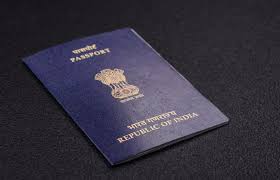e-Passport in India 2025: Know the launch date, how to apply, eligibility, fees, registration process & benefits

India has taken a significant leap in digital identity and travel security with the launch of e‑Passports in 2025. These smart passports include embedded chips that store biometric and personal data securely, helping streamline immigration and prevent identity fraud. If you’re planning to apply for a passport this year, here’s everything you should know—from the launch timeline and eligibility to fees, application steps, and key benefits.
📅 Launch Date and Current Status
To begin with, India introduced e‑Passports as part of the Passport Seva Programme 2.0, which officially launched during the 13th Passport Seva Divas from June 24–26, 2025. External Affairs Minister Dr. S. Jaishankar spearheaded the launch, marking a shift toward more secure travel documents.
Initially, e‑Passports were rolled out in select cities such as Nagpur, Bhubaneswar, and Goa. Over time, cities like Chennai, Hyderabad, Ranchi, and Jaipur joined the list. As of mid‑2025, more than a dozen cities now issue e‑Passports, and expansion is ongoing.
🛂 What is an e‑Passport?
Unlike regular passports, e‑Passports come with a microchip embedded in the front cover. This chip stores key personal and biometric details, including your photo, fingerprints, and digital signature. Notably, it follows the ICAO (International Civil Aviation Organization) standards, ensuring global compatibility.
Moreover, the chip enhances security by preventing unauthorized changes or counterfeiting. In case anyone tries to tamper with it, the passport becomes unreadable and void.
👤 Eligibility for e‑Passports
Anyone eligible for a regular Indian passport can apply for an e‑Passport. Whether you’re applying for the first time or renewing an old one, you’ll receive the new chip-enabled version if your Regional Passport Office (RPO) is equipped to issue it.
Importantly, there’s no separate application process for an e‑Passport. When applying through an enabled Passport Seva Kendra (PSK), you’ll automatically receive the upgraded version.
🧾 Required Documents
When applying, make sure to carry the following:
- Aadhaar Card
- Proof of Date of Birth (Birth Certificate, PAN, etc.)
- Address Proof (utility bill, bank statement, etc.)
- Existing passport (if applying for renewal)
For applicants born on or after October 1, 2023, a birth certificate is mandatory.
💳 Fees and Validity
The best part? The fee structure for e‑Passports is the same as regular passports. Here’s a quick breakdown:
| Type | Pages | Validity | Normal Fee | Tatkal Fee |
|---|---|---|---|---|
| Adult | 36 | 10 years | ₹1,500 | ₹3,500 |
| Adult | 60 | 10 years | ₹2,000 | ₹4,000 |
| Minor | 36 | 5 years or till age 18 | ₹1,000 | ₹3,000 |
Additionally, applicants over 60 years of age and minors aged 8 to 18 get a 10% discount under the normal scheme.
📝 How to Apply for an e‑Passport
The application process is largely the same as a regular passport. However, it’s important to follow the updated steps carefully:
- Register on the Portal
Start by visiting the Passport Seva Portal and creating an account. - Fill Out the Application
Log in and select either “Apply for Fresh Passport” or “Re-Issue Passport.” Fill in all personal details accurately. - Pay the Fees Online
Use the integrated payment gateway to complete your transaction. After payment, you’ll get an ARN (Application Reference Number). - Schedule an Appointment
Choose your preferred PSK, POPSK, or RPO and book a suitable appointment slot. - Visit the Passport Office
On the scheduled date, bring your original documents. At the center, officials will verify your papers and capture biometric data like fingerprints and a photograph. - Track the Application
After submission, you can track your application using the Passport Seva website or the mPassport Seva mobile app.
Once approved, the passport will be dispatched via Speed Post directly to your registered address.
🌐 Where e‑Passports Are Currently Issued
As of now, e‑Passports are being issued from the following cities:
- Chennai
- Nagpur
- Hyderabad
- Bhubaneswar
- Goa
- Ranchi
- Jaipur
- Jammu
- Amritsar
- Raipur
- Surat
- Shimla
- Delhi
More cities are expected to join the list by the end of 2025 as the infrastructure expands.
🎯 Top Benefits of e‑Passports
Upgrading to an e‑Passport comes with several advantages. Here’s what you gain:
- Higher Security
Since the chip is encrypted, it becomes extremely difficult for fraudsters to forge or alter passport data. - Faster Immigration Clearance
e‑Passports work with automated e‑gates at many international airports, speeding up the identity verification process. - Global Acceptance
Thanks to ICAO compliance, e‑Passports are valid and recognized across the globe, making international travel smoother. - Better Privacy
Addresses and parent names are now digitally stored instead of printed, reducing the risk of data exposure. - Efficient Police Verification
With the help of the mPassport Police App, police clearances are now processed in just 5–7 days in many areas. - Tamper-Proof Technology
Any damage or unauthorized change to the chip disables the passport, protecting the holder from fraud.
🧭 Final Thoughts
In conclusion, the introduction of e‑Passports is a monumental step in India’s journey toward secure and smart governance. These passports not only improve identity protection but also enhance travel convenience and international compliance. If you’re planning to apply for or renew your passport in 2025, opting for an e‑Passport is the smart—and secure—choice.






